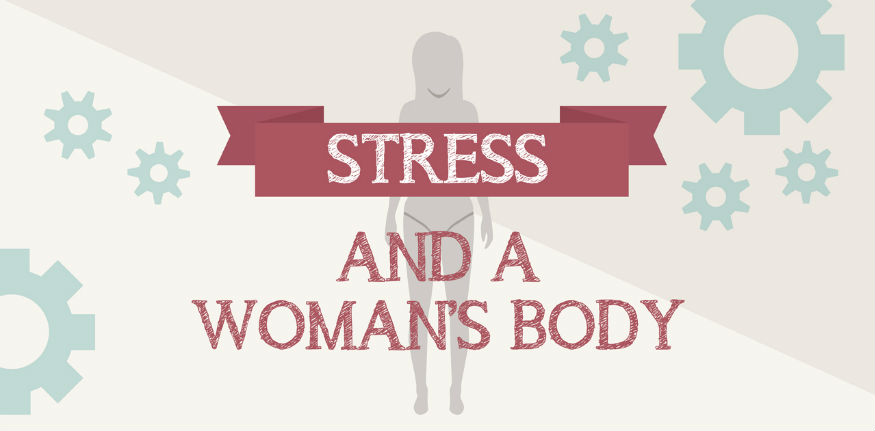 Monkey Business/Fotolia
Monkey Business/Fotolia
Have you ever heard someone say, “I am so stressed!” Or perhaps you have been the one to say it. It is a very common term that is thrown around in conversation these days.
Most of the time when it is said, it is referring to psychological stress. The American Psychological Association 2011 annual survey on stress found that “nearly a third of respondents said they believe stress is strictly psychological and has no impact on physical health.”
However, an article entitled “The Science of Stress” in Experiencelife.com's No-Gimmicks, No-Hype Health & Fitness Magazine notes, “Experts across medical disciplines agree that this ( believing that stress has no impact on physical health) is a dangerous misperception.”
According to The American Institute of Stress, the term “stress” as it is currently used was coined by Hans Selye in 1936, who defined it as “the non-specific response of the body to any demand for change.”
Within the definition of the word stress we can see that it is not just psychological but it has elements that affect the body as well.
Stress is a normal part of human existence. It is designed to protect us during dangerous situations and it causes a cascade of chemical reactions that prepares our body to flight or flee from a dangerous situation.
The stress response is designed to be a short-lived experience. When it is, the body can return to normal.
Stress is “natural. What’s also natural, though — and you see it in the wild — is that most stressful episodes are resolved quickly, one way or another. The natural biological, evolutionary blueprint is to have long periods of mellow recovery after bursts of stress,” according to Rick Hanson, PhD, a neuropsychologist and author of "Buddha’s Brain: The Practical Neuroscience of Happiness, Love & Wisdom.” (New Harbinger, 2009)
The article “The Science of Stress” quotes Hanson as saying, “modern life exposes us to mild-to-moderate, but chronic, stress constantly — multitasking, juggling too many things, moving too quickly, being bombarded with stimulation. In other words, we’re simply not designed to flee from predators for 10 hours a day with no breaks. But that is essentially what we do."
Stress negatively impacts the body in that chronic stress can create physical disease over time. When stress hormones are released into your system, the following physical symptoms can occur:
• Heart rate increases.
• Blood vessels constrict increasing blood pressure.
• Digestive secretions and digestive processes are inhibited.
• Cortisol hormones are released to the brain and the body.
• Blood sugars are released into the blood which can increase blood sugar levels to an unhealthy degree.
Long-term stress response in the body can lead to:
• Too much cortisol production hitting the brain over time.
• This can result in hippocampal brain damage which leads to circadian rhythm disruption.
• This can cause moodiness, memory loss, brain fog and sleep disturbances.
• Vital nutrients may be used up too quickly and cause depletion.
• Overproduction of low-density (LDL) cholesterol can occur.
• Cortisol can increase glucose levels in the blood. Glucose is stored as fat if unused, which results in weight gain.
As you can see the long-term body responses are risk factors for heart disease, metabolic syndrome and diabetes.
So what is the lesson in all this?
Stress is more than a psychological response. It also causes physical responses that can make us sick. We have to stop minimizing how stress affects us and instead begin to take a serious look at how to manage stress so we can create a healthier life.
If you want suggestions on how to manage stress, you can go to my website for articles on relieving stress, like "Relieving Stress in 10 Minutes or Less," at healthydaes.com.
Live Vibrantly,
Dr. Dae
Dr. Daemon Jones
Dr. Dae's website: www.healthydaes.com
Dr. Dae's Bio:
Dr. Daemon Jones, affectionately known as Dr. Dae, is your diabetes reversal, hormones, metabolism and weight loss expert. Dr. Dae is a naturopathic doctor who treats patients all over the country using Skype and phone appointments. Visit her or schedule a free consultation at her website www.HealthyDaes.org/
Sources:
The Science of Stress. Experiencelife.com. December 8, 2015.
https://experiencelife.com/article/the-science-of-stress
What is Stress? The American Institute of Stress. December 8, 2015.
http://www.stress.org/what-is-stress
Reviewed December 9, 2015
by Michele Blacksberg RN
Edited by Jody Smith





Add a CommentComments
There are no comments yet. Be the first one and get the conversation started!